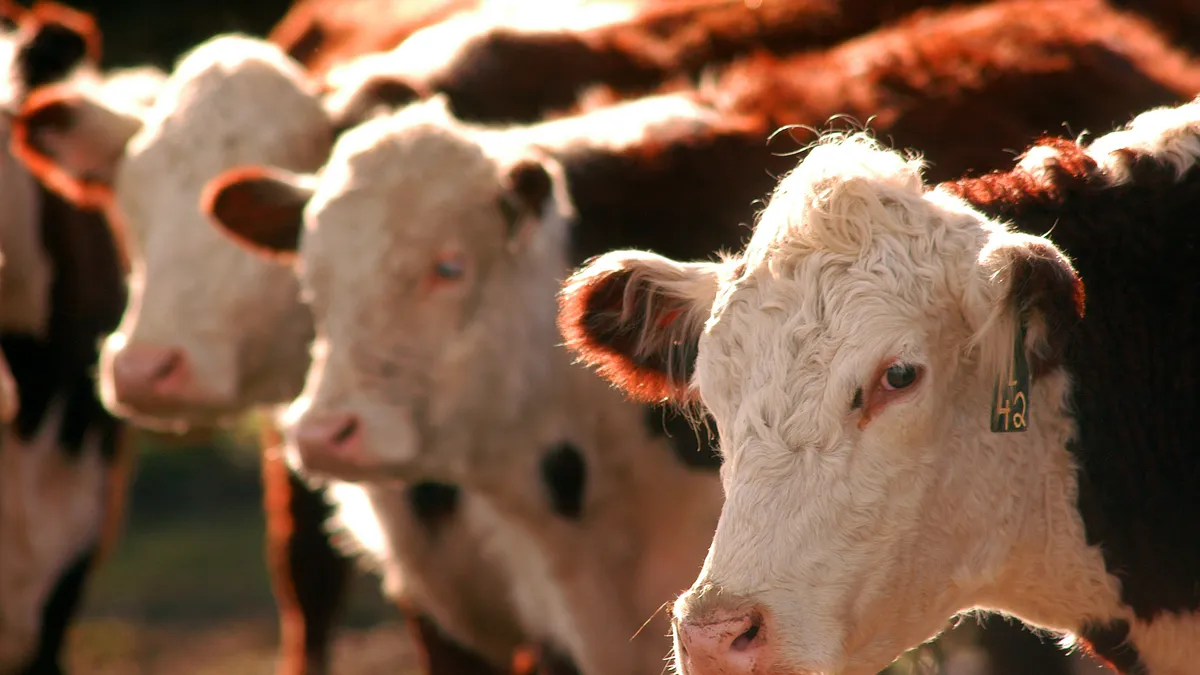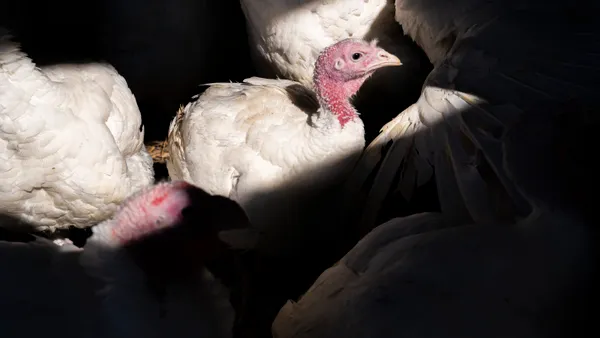Dive Brief:
- Livestock and poultry farmers will face new animal welfare requirements to qualify for the U.S. Department of Agriculture's "organic" label, according to a rule unveiled Wednesday as part of a major effort to crack down on food fraud.
- New standards require animals to have year-round outdoor access, and shelter must allow livestock to lie down, stand up and turn around. Producers must also maintain preventative health care practices and treat animals with medicine to "minimize pain, stress and suffering."
- The USDA is making the biggest updates to its organic program since it was created in 1990 as the agency works to restore consumer confidence in the label through strengthened oversight and enforcement.
Dive Insight:
Chicken, steak or other products bearing the "USDA Organic" label are typically viewed as more welfare friendly, with studies showing consumers assume there are higher standards versus conventional livestock systems.
Many organic producers have clamored for an overhaul of the system, saying current standards don't provide clear requirements for animal welfare and have allowed some farmers to skirt the rules through minimal investment.
Previous rules required animals to be fed organic feed, and raised in living conditions that accommodate "health and natural behavior." Animals also cannot be administered hormones or unnecessary antibiotics.
"The new standards are a definite improvement over the current reality which has created competitive harm among farmers and not met consumers expectations,” Adam Warthesen, senior director for government and industry affairs for organic dairy cooperative Organic Valley, said in a statement.
Producers will generally have one year to comply with the new regulations, which go into effect 60 days after the rule is published in the Federal Register. Organic poultry producers will have five years to implement outdoor space requirements and certain other rules.
Beyond outdoor space requirements, producers will also be required to document treatment of sick animals and ensure that livestock is transported in ways that protects them from extreme climate.
“Having clear, consistent and enforceable standards is paramount for the organic sector to not only maintain consumer trust but to ensure that farms and businesses of all sizes have a fair shot at competing in the marketplace by meeting a minimum set of requirements,” said Tom Chapman, CEO of the Organic Trade Association, which has spearheaded efforts to overhaul the organic program.
Earlier this year, the USDA debuted the Strengthening Organic Enforcement rule to crack down on fraud in the sector and increase transparency in the marketplace. The rule requires import certificates for all organic products entering the U.S., and also aims to reduce the number of uncertified entities in the organic supply chain that operate without USDA oversight — including importers, traders, and certain brokers.
"I think it's fair to say this is the most significant update in organic regulations in over 30 years," USDA Secretary Tom Vilsack told reporters on a media call Wednesday. "It's an important step forward in a continued effort to support an industry that is incredibly important to American agriculture.”











